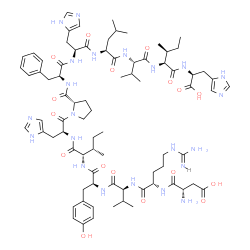Relation of Urinary Gene Expression of Epithelial-Mesenchymal Transition Markers With Initial Events and 1-Year Kidney Graft Function
C. Gomez-Alamillo, M.A. Ramos-Barron, A. Benito-Hernandez, E. Rodrigo, J.C. Ruiz, C. Agüeros, M. Sanchez, M. Arias
Index: Transplant. Proc. 44(9) , 2573-6, (2012)
Full Text: HTML
Abstract
Introduction Renal dysfunction due to acute rejection (AR), acute tubular necrosis, or calcineurin inhibitors toxicity is related to development of interstitial fibrosis/tubular atrophy (IF/TA) and graft survival. Determination of serum creatinine (sCr) displays poor sensitivity as a marker for early detection of graft dysfunction. Kidney biopsy is an accurate but invasive procedure for the diagnosis. The levels of urinary mRNA of genes that regulate epithelial-mesenchymal transition (EMT) can reflect early damage and detect the development of IF/TA. Repeated studies of these genes can provide noninvasive information about the evolution of the graft, facilitating early diagnosis and treatment.
Related Compounds
| Structure | Name/CAS No. | Molecular Formula | Articles |
|---|---|---|---|
 |
Angiotensinogen from human plasma
CAS:11002-13-4 |
C83H122N24O19 |
|
Dynamic CCAAT/enhancer binding protein-associated changes of...
2014-02-01 [Hypertension 63(2) , 281-8, (2014)] |
|
Human liver-type fatty acid-binding protein protects against...
2015-01-15 [Am. J. Physiol. Renal Physiol. 308(2) , F114-21, (2015)] |
|
Predicting metachronous liver metastasis from colorectal can...
2013-10-01 [J. Surg. Res. 184(2) , 861-6, (2013)] |
|
The role of the renin-angiotensin-aldosterone system in pree...
2013-04-01 [J. Mol. Endocrinol. 50(2) , R53-66, (2013)] |
|
Correlation analysis of angiotensin-converting enzyme, angio...
2013-12-01 [Hum. Pathol. 44(12) , 2806-13, (2013)] |